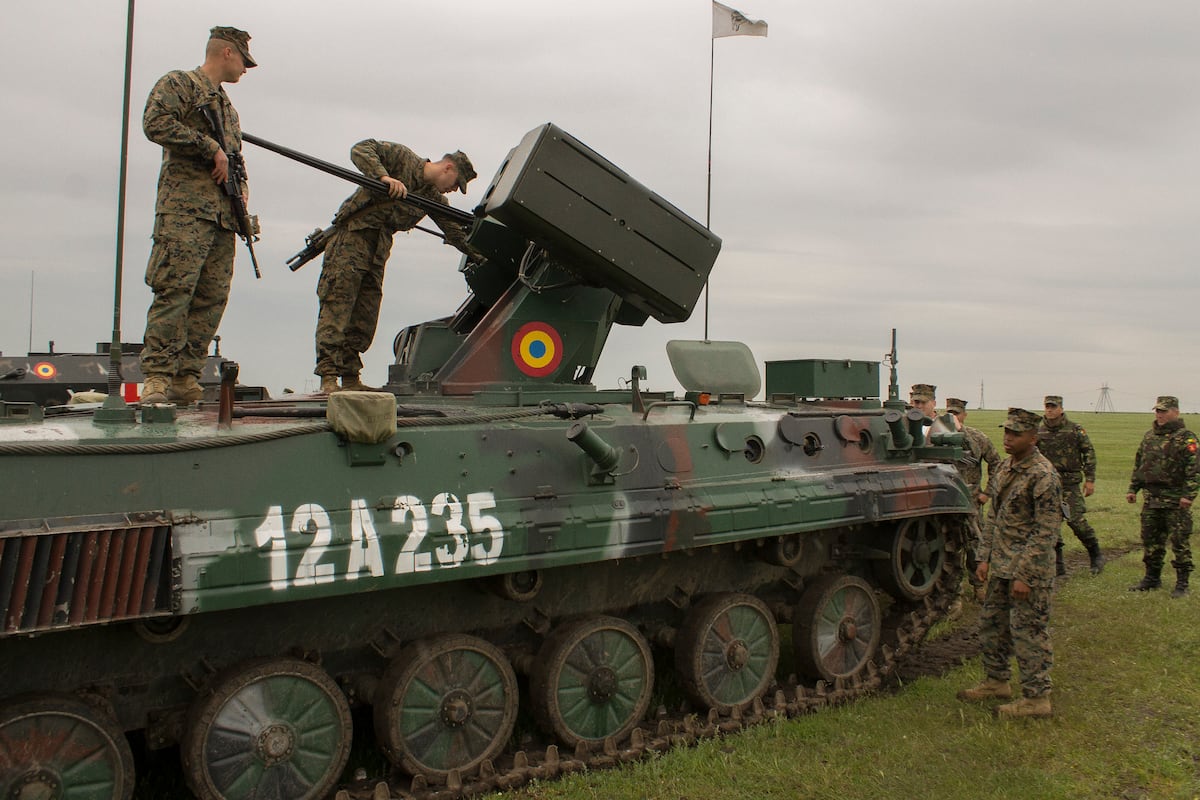



WARSAW, Poland — As numerous Eastern European allies pursue acquisitions of infantry fighting vehicles, Romania and Poland are advancing plans to boost their tracked vehicle fleets, yet with different strategies towards foreign suppliers and technology transfers.
In Romania, the country’s government decided on July 10 to launch its much-awaited program to replace outdated Soviet-times MLI-84 tracked infantry fighting vehicles with new gear. Bucharest aims to purchase some 246 vehicles along with simulators and a logistics package over an eight-year period after a deal is signed, earmarking close to €2.55 billion ($2.96 billion) for this acquisition. In the program’s potential second stage, a further 52 vehicles could be ordered.
Local observers say Romanian Ministry of National Defence is to select between Germany’s Rheinmetall with the Lynx, the CV90 made by BAE Systems Hägglunds in Sweden, South Korea’s Hanwha with the AS21 Redback, and General Dynamics European Land Systems with its Ascod, among others. A committee consisting of Defence Ministry officials and representatives of state-owned defense company Romtehnica is to pick the winner.
The Romanian authorities expect that, after an initial batch of 26 vehicles is made by the selected supplier, the country’s state-dominated defense industry will take over manufacturing activities and produce the remaining 220 IFVs.
“The essential security interest for the Romanian state is to protect the supply chain through a technology transfer of the assembly, integration, testing and maintenance capabilities for the aforementioned technology and products to Romania,” the Ministry of National Defence said in a statement.
A spokesperson for the Romanian ministry told Defense News that, when contracting for major acquisitions, one of the institution’s priorities is to maximize the involvement of the country’s defense sector.
“The Ministry of National Defence is interested in increasing the contribution of the national defense industry to the procurement process of the Romanian Armed Forces and in ensuring, at local level, the lifetime maintenance of weapon systems and major equipment,” the spokesperson said.
Alexandru Georgescu, a security and defense analyst based in Bucharest, told Defense News that the past years have brought investments in the country’s defense industry by foreign groups, including Rheinmetall and Hanwha, which has whetted the appetites of Romanian officials for domestic production of the IFVs.
“But it all depends on how the bidding process will go, and anything other than a government-to-government acquisition could create delays as competitors are likely to contest the winner,” he said.
Last March, Poland’s Ministry of National Defence signed a contract worth PLN 6.57 billion ($1.8 billion) to buy 111 Borsuk (Badger) tracked infantry fighting vehicles from Polish state-run defense group PGZ, and potentially almost 1,300 more Borsuks and accompanying vehicles in the coming years.
The Borsuk is set to replace the Soviet-designed BWP-1 vehicle as the Polish Army’s flagship tracked IFV. The 111 ordered vehicles are to be delivered to the nation’s land forces in the years 2025 to 2029.
On top of the amphibious Borsuk, which weighs around 28 tons in its basic variant, the ministry is advancing plans to order up to 700 heavier IFVs with improved ballistic and anti-mine protection.
Poland’s Defence Ministry has declared that, in cooperation with other European allies, it wants to spur the creation of consortia that will jointly buy weapons. Polish Deputy Prime Minister and Defence Minister Władysław Kosiniak-Kamysz said the Borsuk could be one of the products that Poland could buy together with other countries, as a number of Eastern European allies are currently planning to purchase new IFVs.
At the same time, most of the companies that are actively marketing their tracked vehicles in Romania are also advancing similar campaigns in Poland, as PGZ is evaluating the available platforms produced by foreign groups for a potential purchase of a license, local observers say.
An official decision whether PGZ is to develop a heavy IFV on its own or buy a license from abroad has yet to be made.
Jaroslaw Adamowski is the Poland correspondent for Defense News.
